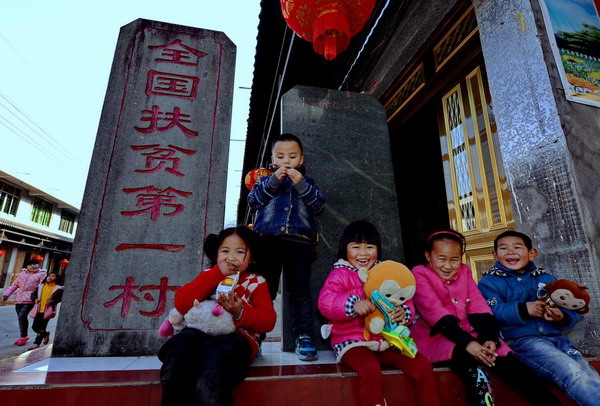Balanced way to reduce poverty
China Daily, February 16, 2016 Adjust font size:
 |
|
Children of Se ethnic group sit in front of a monument that reads "China's No. 1 Poverty Relief Village" at Chixi Village, Panxi town, Fuding city in East China’s Fujian province, Feb 14. The village has shaken off poverty thanks to assistance from Party and government officials at all levels over the past 30 years. [Photo/Xinhua] |
Such views once again brought into stark relief the rural-urban development gap and the need for effective poverty alleviation efforts.
The resolve of the central authorities to address the issue is unquestionable. Yet, having the determination to help people escape poverty is one thing, having the right approach is another.
Poverty alleviation does not mean simply providing migrant workers with permanent residences in cities where they work, or the relocation of poverty-stricken villagers from their geographically disadvantaged villages, although both of these are necessary. It also means helping those in need to help themselves.
It is important for the central authorities and their local counterparts to have a clear road map of how poverty-stricken villagers can be helped to develop their own capacity to improve their lives.
It is also imperative for the authorities at various levels to formulate long-term strategies for the less developed or even underdeveloped areas so that development can be better balanced in the foreseeable future and those who have still to enjoy the fruits of development can do so.
But even more worrisome than the destitution is the dispiritedness and decadence evident in poor rural areas. In some villages, young villagers are obsessed with gambling all the time without ever lending any thought to how to change fate through their own efforts. And the filial piety traditionally held in high esteem has been lost among many young villagers, who shirk their responsibility of caring for aged parents. As a result, it is not rare for aged villagers who cannot look after themselves to take their own lives.
Poverty alleviation is not just a matter of money. It is also a matter of recharging those living in poverty with hope for a better future.